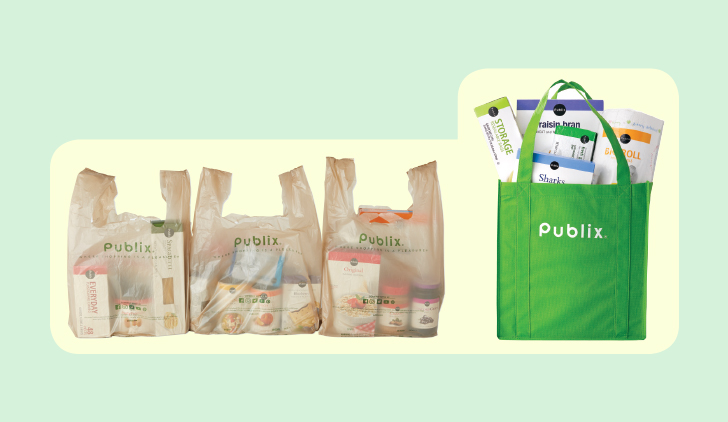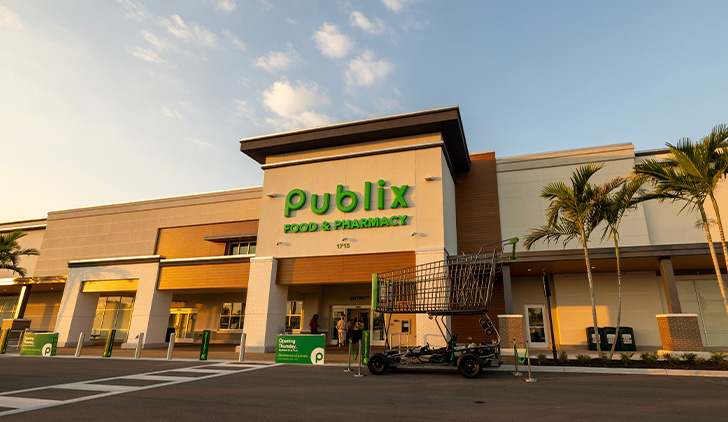
Plastic pollution is a hot topic. Learn how we are doing our part to protect our environment without sacrificing customer service or customer choice.
We proudly operate more than 1,200 stores across seven states. We have stores in the mountains and along coastal communities, and up until recently, all our customers were asked, “Is plastic okay?” at checkout. But now, many of the communities we serve are banning or looking to ban single-use plastic bags — making some customers wonder if plastic is okay.
Are bans really the answer? Well, we can’t say yes or no, but we can say we take steps, through best bagging practices and our customer recycling program, to reduce the number of plastic bags that end up in landfills. And we continue to explore alternative products as they come to market so we can meet today’s needs while being mindful of what’s essential for tomorrow.
One of the ways we lower our use of plastic bags is through establishing items per bag (IPB) goals at the store, division and company level.
So, how do stores reach this goal without creating heavy bags and putting food at risk? Our customer service department is trained to plan how they bag orders. This helps avoid using multiple bags for items that could be bagged together. They also look for
- extra space in a bag that can be filled with smaller items and
- items with handles or heavy items (that would require double bagging) that can be carried without a bag at all.
Is paper better than plastic?
Paper bags have long been considered an environmentally friendly alternative to plastic bags because they’re made from a renewable resource — pulpwood from trees. But they take a lot of water and energy to produce and don’t break down easily in landfills.
So, if you’re looking for a sustainable bag, what is your best option?
Reusable is still your best bet.
When it comes to choosing a sustainable bag, reusable bags are still your best option. They hold approximately the same amount of product as three plastic bags. And they can be used for more than just groceries — use them for the beach, pool or to store cleaning supplies. Plus, when you purchase select reusable bags, 10 cents of the bag’s purchase price helps support sustainability projects in local communities, up to a maximum of $125,000 per year.

Behind the Design – A behind-the-scenes look at how Publix designs reusable bags.



